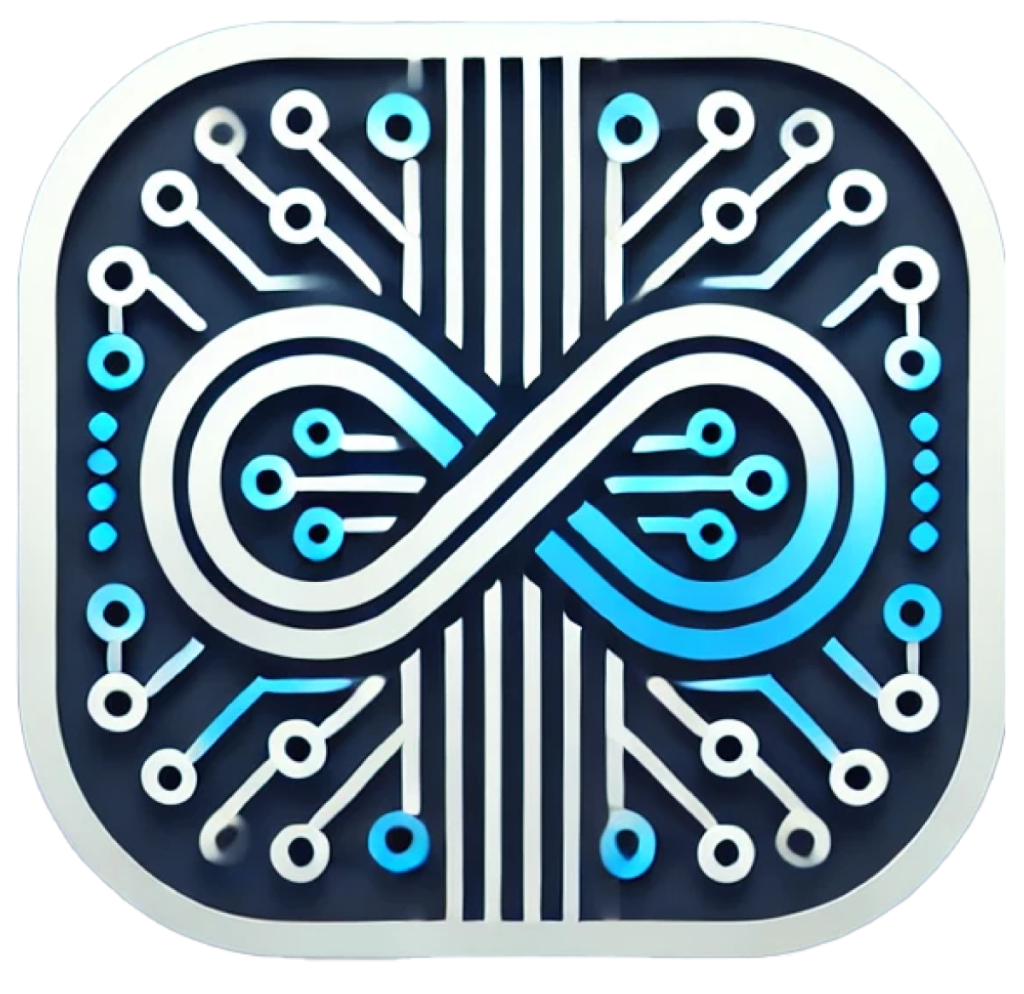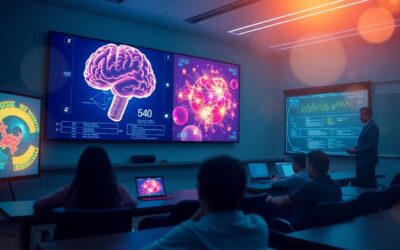You hold the key to unlocking your full learning potential by harnessing cognitive assessment tools. These tools can help you identify your unique strengths and weaknesses, enabling you to create a customized learning strategy that caters specifically to your needs. In this guide, we will explore how to effectively utilize these assessments to not only enhance your understanding of various subjects but also to streamline your learning experience for maximum impact. Get ready to transform your approach and achieve your academic or professional goals with greater ease.
Understanding Cognitive Assessment Tools
The cognitive assessment tools available today provide valuable insights into a learner’s abilities, strengths, and areas for improvement. These tools utilize various methodologies to measure cognitive functions like memory, reasoning, problem-solving, and attention. By understanding how these assessments work, you can unlock the potential within each learner and tailor educational strategies that cater to their unique cognitive profiles.
How to Choose the Right Tool
Right off the bat, selecting the appropriate cognitive assessment tool is key to achieving your learning goals. Consider what specific cognitive abilities you want to evaluate and ensure the tool aligns with your objectives. Look for assessments that are validated, reliable, and suitable for your audience’s age and experience level.
Factors to Consider in Assessment
The selection of a cognitive assessment tool involves multiple factors that you should consider to make an informed decision. These include:
- Target cognitive skills and abilities
- Your learners’ age and demographic characteristics
- Assessment accuracy and reliability
- Ease of administration and interpretation
After weighing these aspects, you will be better prepared to choose a tool that fits your learning objectives.
Understanding the factors that impact cognitive assessments allows you to ensure their relevance and effectiveness for your learners. You should think about the following elements:
- Cost of the assessment
- Vendor support and training
- Feedback and reporting options
- Integration capabilities with existing learning platforms
After considering these elements, you will enhance your ability to implement tailored learning strategies effectively.
Analyzing Assessment Results
Now that you have your cognitive assessment results, it’s time to explore into their meaning. Analyzing these scores will provide deeper insights into your learning capabilities, helping you to forge effective strategies tailored to your unique needs. By pinpointing specific areas of strength and areas requiring attention, you can create a focused plan to enhance your learning experience and maximize your potential.
How to Interpret Scores
Interpret the scores by comparing them against normative benchmarks to identify where you stand. Look for patterns and discrepancies among different cognitive domains, such as working memory, verbal skills, and processing speed. Understanding the context behind the scores will enlighten you on your cognitive profile, enabling you to tailor your learning tactics accordingly.
Tips for Identifying Learning Strengths and Weaknesses
Strengths and weaknesses in learning often reveal themselves through specific patterns in assessment results. To effectively identify these areas, consider the following tips:
- Review individual domain scores to highlight strengths
- Examine the discrepancies between various scores
- Consider qualitative feedback from the assessment
- Compare results with your personal learning experiences
The insight gained will help you create a more targeted approach to your learning.
To further enhance your understanding of strengths and weaknesses, you may wish to engage in self-reflection. This can be done through analyzing your previous learning experiences and preferences. Use the following tips to refine your approach:
- Maintain a learning journal to track progress
- Seek feedback from peers or mentors
- Assess your emotional responses to different learning situations
- Participate in diverse learning activities
The additional perspective you gain will empower you to evolve your learning strategies effectively.
Developing Tailored Learning Strategies
Even with standardized curriculum frameworks, recognizing that every learner is unique is crucial. By integrating cognitive assessment tools into your strategy, you can design personalized learning pathways that cater to individual needs, thereby enhancing engagement and retention. Tailored strategies not only address varying learning styles but also promote self-efficacy, ultimately leading to improved academic outcomes.
How to Create Personalized Learning Plans
You can begin creating personalized learning plans by first assessing each learner’s strengths, weaknesses, and preferences. Use the insights gathered from cognitive assessments to identify specific goals and tailor instructional methods accordingly. Consider incorporating a variety of resources and activities that appeal to different learning styles, ensuring that each plan is dynamic and adaptable to changes in the learner’s progress over time.
Tips for Implementing Strategies Effectively
If you want to implement tailored learning strategies efficiently, consider the following tips:
- Set clear, achievable goals for learners.
- Monitor progress regularly and adjust strategies as needed.
- Encourage student autonomy by allowing them to take part in decision-making.
- Provide ongoing feedback to reinforce learning.
- Solicit feedback from learners on what works best for them.
- Collaborate with colleagues to share best practices and resources.
- Be flexible and willing to reshape strategies based on individual progress.
- Stay informed on the latest educational research to continually refine your methods.
- Learning pace and comprehension
- User feedback and insights
- Changing curricular goals
- Types of assessment results
- Engagement levels during different activities
- Shifts in motivation or interest
- Create a shared communication platform for stakeholders.
- Encourage involvement in decision-making processes.
- Host collaborative events to strengthen relationships.
- Regularly celebrate student successes to maintain motivation.
- Foster group discussions that encourage sharing best practices.
- Implement mentorship programs connecting experienced educators with parents.
- Utilize technology to share resources and updates efficiently.
- Establish clear roles and responsibilities to streamline collaboration.
- The rise of remote and hybrid learning models.
- The increasing diversity of learners and their backgrounds.
- Focus on skills development aligned with workforce trends.
- The integration of experiential learning opportunities.
- The demand for social-emotional skills assessment.
- The role of collaboration in modern learning environments.
This will help create a supportive and focused learning environment.
Create a supportive framework for the implementation of these tailored strategies to maximize their effectiveness. Regularly evaluate the effectiveness of each approach:
This ensures you remain responsive to each learner’s evolving needs.
Monitoring Progress and Adjustments
To effectively implement tailored learning strategies, ongoing monitoring of progress is important. You should regularly assess how well these strategies are working for your learners. By gathering data on their performance, you can determine any necessary adjustments that may enhance their learning experience. Regular check-ins will also help you maintain engagement and motivation, ensuring that your approach remains impactful.
How to Track Improvement
An effective way to track improvement is by employing various assessment methods such as quizzes, projects, and observational notes. These tools not only provide quantitative data but also highlight qualitative changes in learner behavior and understanding. Establish benchmarks and set specific targets to measure progress over time, making revisions based on this information.
Factors to Revise Learning Strategies
Any effective learning strategy will require periodic revisions based on several factors. These may include the learner’s changing needs, feedback from assessments, and shifts in engagement levels. Consider the following factors when making adjustments:
Perceiving these factors accurately will guide you in refining your strategies to better suit individual learning journeys.
Adjustments to your learning strategies should be influenced by continuous observation and responsiveness to learners’ needs. Look closely at areas where learners struggle and thrive, and adapt your methodologies accordingly. Consider these factors when revising:
Perceiving these dynamics will empower you to create a more effective and personalized learning environment.
Engaging Stakeholders
All successful tailored learning strategies require the active involvement of stakeholders, including parents, educators, and the community. By fostering open communication and encouraging collaboration, you can ensure that everyone plays a role in supporting each learner’s journey. Gaining insights from diverse perspectives brings additional depth to understanding student needs, making engagement necessary for effective education.
How to Involve Parents and Educators
You can start by organizing informative workshops that focus on the benefits of cognitive assessments and tailored learning strategies. Engaging parents through regular updates and involving educators in the assessment process can create a unified approach to learning. Providing resources for both parents and teachers allows them to support students effectively and reinforces the importance of their partnership in the education journey.
Tips for Collaborative Support
Tips for fostering collaborative support include establishing regular check-ins and feedback sessions between parents, educators, and specialists. Open dialogue enhances understanding of student needs and facilitates adjustments to learning strategies as necessary. Consider the following approaches:
Assume that positive relationships yield impactful results.
The importance of ongoing collaboration cannot be overstated in facilitating tailored learning strategies. Create opportunities for stakeholders to share experiences and insights, creating a sense of community around student growth. Consider these strategies:
Assure that every voice is valued in the educational process, enhancing the quality of support for learners.

Future Trends in Cognitive Assessment
Many educators and institutions are recognizing the vital role cognitive assessments play in developing personalized learning experiences. As the educational landscape evolves, these tools are becoming increasingly sophisticated, providing insights that facilitate more targeted approaches to each learner’s unique needs. Understanding future trends in cognitive assessments is critical for educators aiming to enhance learning outcomes.
How Technology is Shaping Assessments
Trends in technology are revolutionizing cognitive assessments by integrating artificial intelligence and machine learning capabilities. You’ll find that adaptive testing methodologies adjust in real-time, creating a dynamic assessment environment that better reflects individual learner progress. Moreover, data analytics tools can supply you with a comprehensive view of cognitive strengths and weaknesses, empowering you to make data-driven decisions for tailored strategies.
Factors Influencing Future Learning Needs
Cognitive assessment tools must evolve alongside changing educational landscapes and learner capabilities. Various factors impact your learning needs, including technological advancements, evolving learner demographics, and shifts in workforce requirements. Consider the following influences that are likely to shape future assessments:
Recognizing these factors ensures that your assessment strategies remain relevant and effective, addressing the diverse needs of tomorrow’s learners.
Shaping your understanding of these influences can enhance your assessment strategies significantly. Learners today require more than just traditional evaluations; they need assessments that adapt to their unique contexts and aspirations. Consider these influences when tailoring your approach:
Recognizing these trends will help you anticipate and address the evolving educational landscape, ensuring your strategies remain effective for every learner.
Conclusion
Taking this into account, utilizing cognitive assessment tools can significantly enhance your approach to tailored learning strategies. By identifying individual strengths and weaknesses, these tools enable you to create personalized educational experiences that align with your unique needs. Adopting these strategies not only fosters better understanding and retention but also motivates you to engage more deeply with the learning material. Embrace the insights gained from cognitive assessments to transform your educational journey and unlock your full potential.
Q: What are cognitive assessment tools, and how do they aid in developing tailored learning strategies?
A: Cognitive assessment tools are specialized instruments designed to measure various cognitive abilities, such as memory, problem-solving skills, reasoning, and processing speed. By understanding an individual’s cognitive strengths and weaknesses, educators and trainers can create personalized learning strategies that cater to each person’s unique needs. For example, if a learner has strong analytical skills but struggles with visual processing, tailored strategies may include more text-based resources and fewer visual aids to optimize learning outcomes.
Q: How can educators effectively integrate cognitive assessments into their teaching practices?
A: To effectively integrate cognitive assessments into teaching practices, educators should first familiarize themselves with the available tools and determine which assessments best suit their goals. After conducting assessments, it is vital to analyze the results to identify patterns in students’ cognitive abilities. Subsequently, educators can design and implement customized learning plans that leverage students’ strengths while supporting their growth areas. Ongoing assessments and adjustments to the learning strategies will ensure that they continue to meet the evolving needs of learners. Collaboration with other educators and specialists can also provide additional insights and resources.
Q: What are some common misconceptions about cognitive assessments in the context of personalized learning?
A: One common misconception is that cognitive assessments provide a fixed label for students, suggesting they cannot change or improve over time. In reality, cognitive abilities can develop with targeted interventions and practice. Another misconception is that assessments are only beneficial for identifying deficits rather than strengths. In fact, recognizing a learner’s cognitive strengths can be equally important in designing strategies that promote engagement and success. Lastly, some believe that the assessment process is solely a one-time event; however, ongoing evaluation helps track progress and refine learning approaches to ensure continued effectiveness.




0 Comments